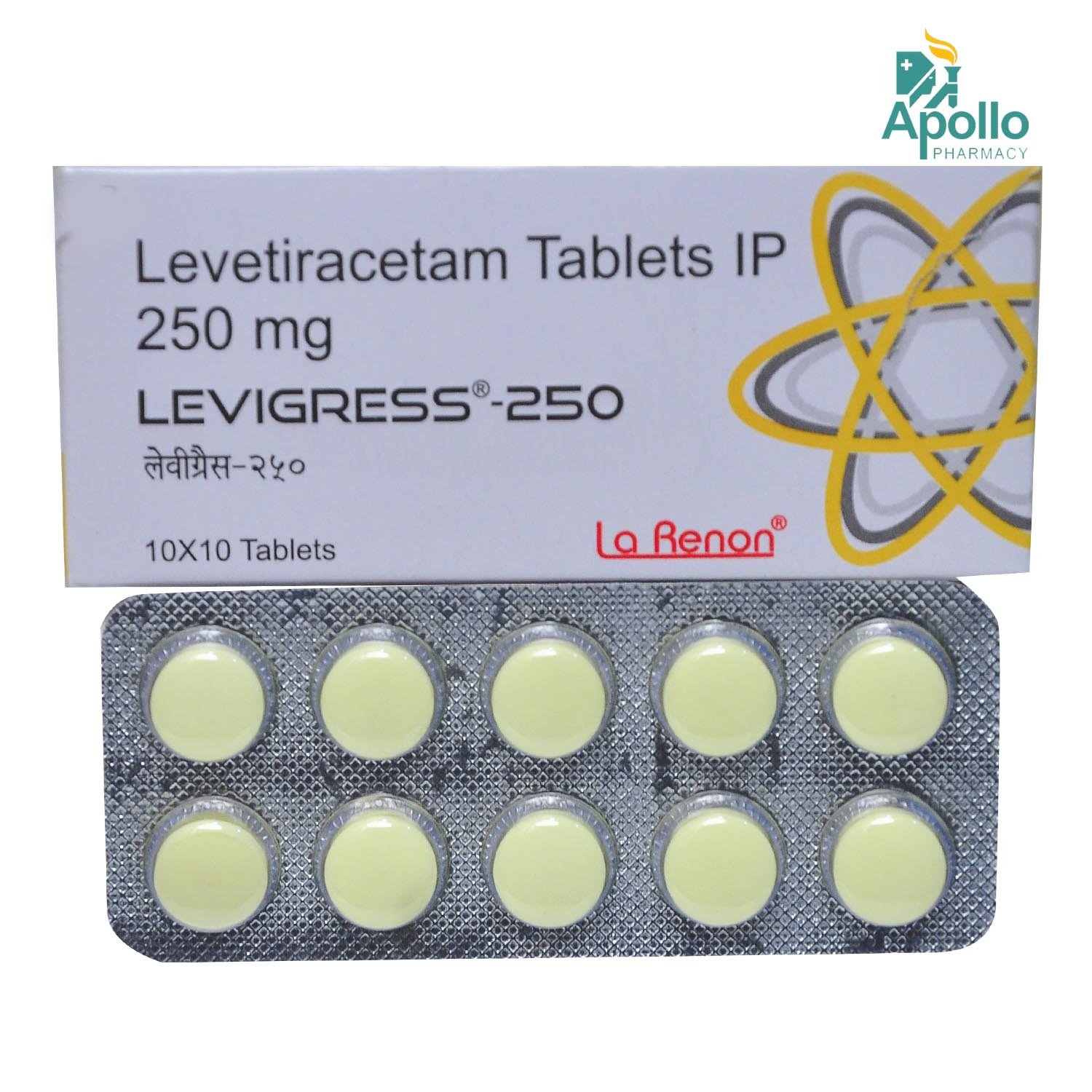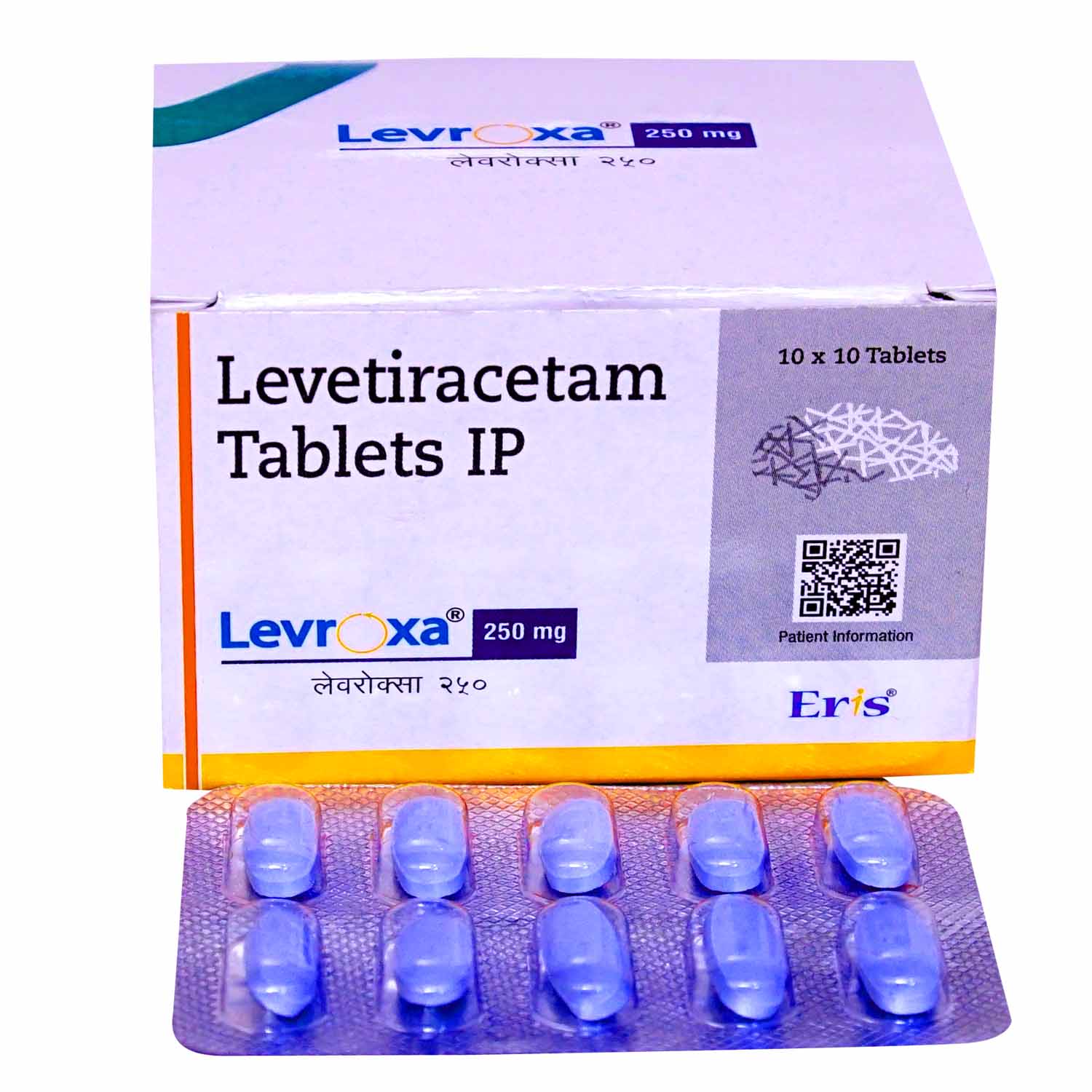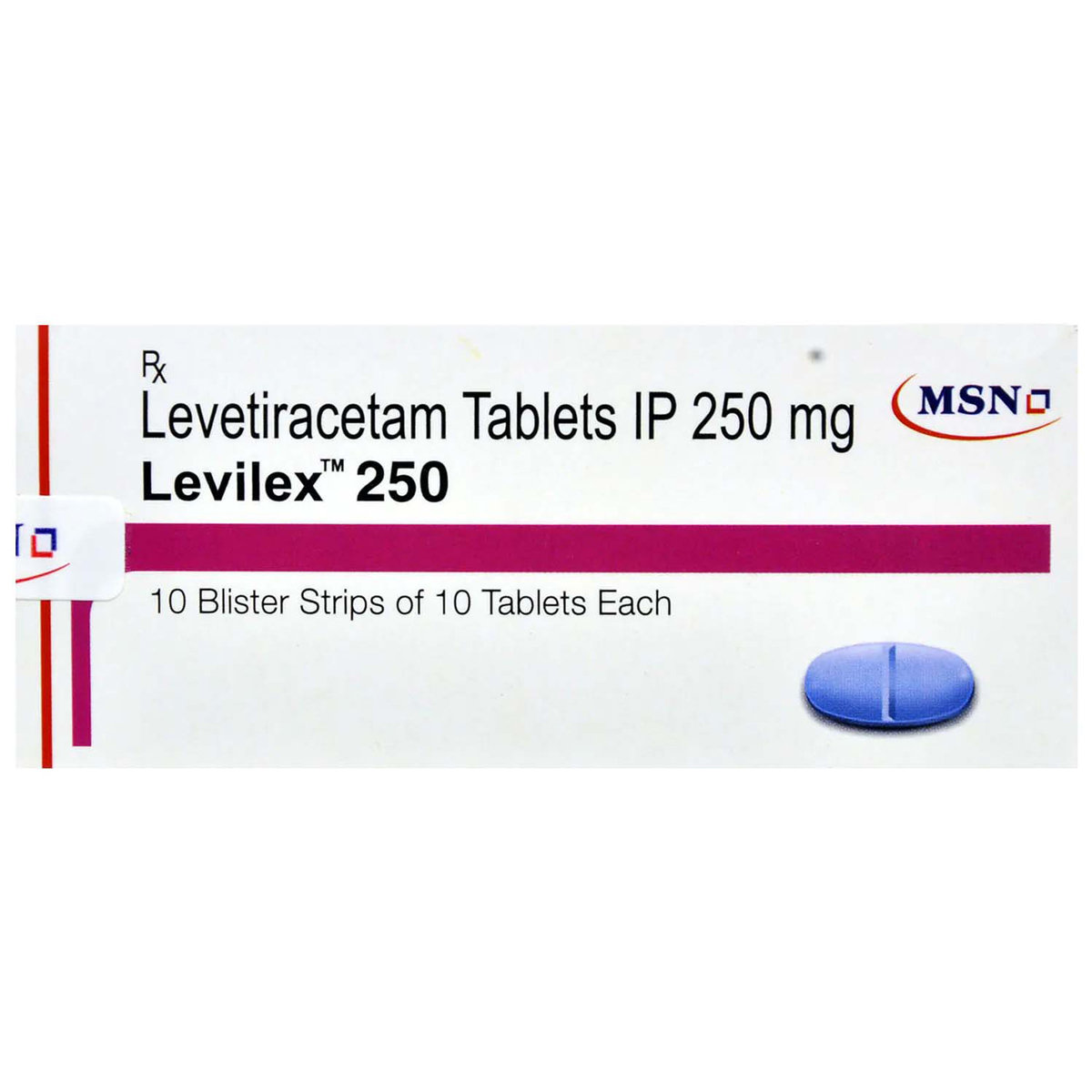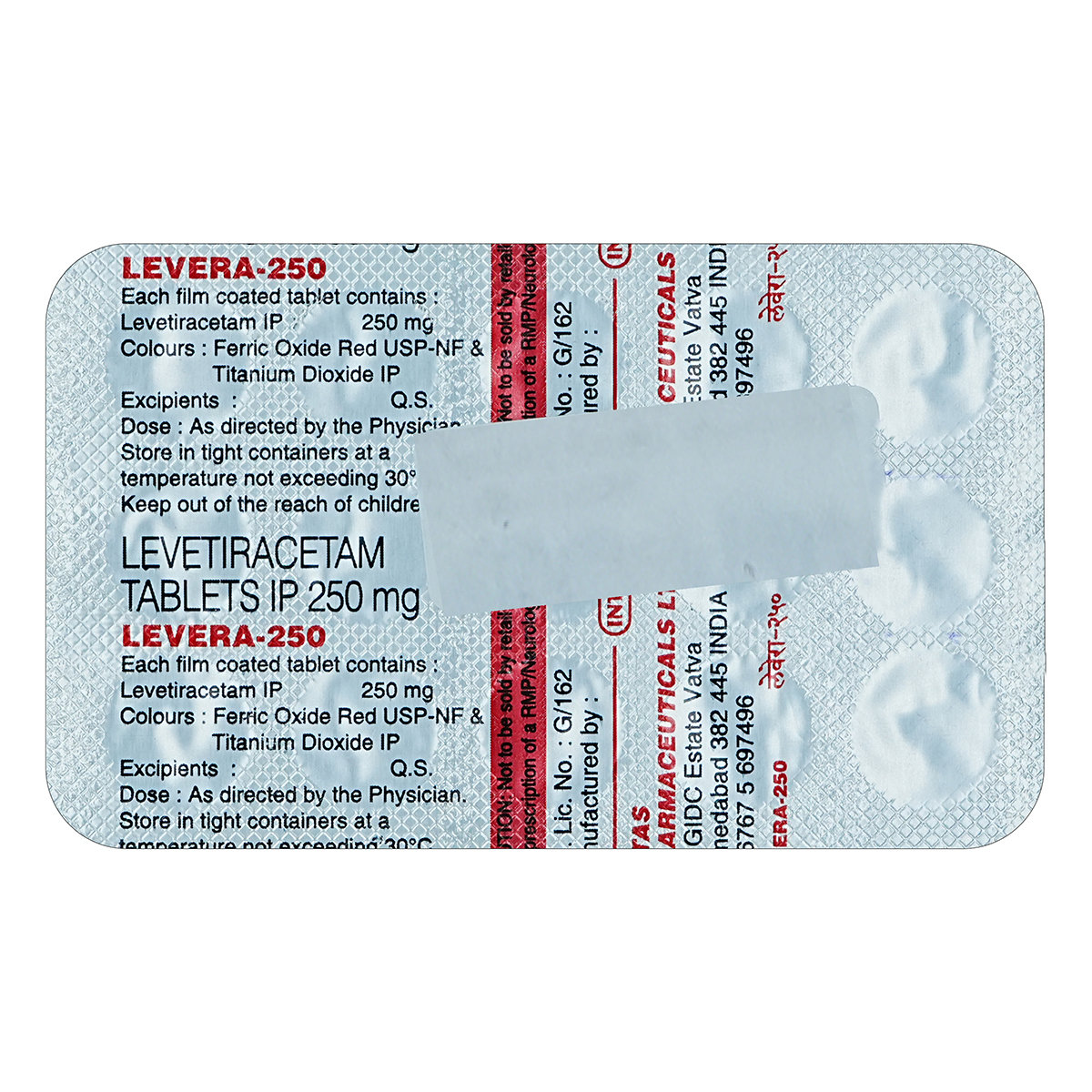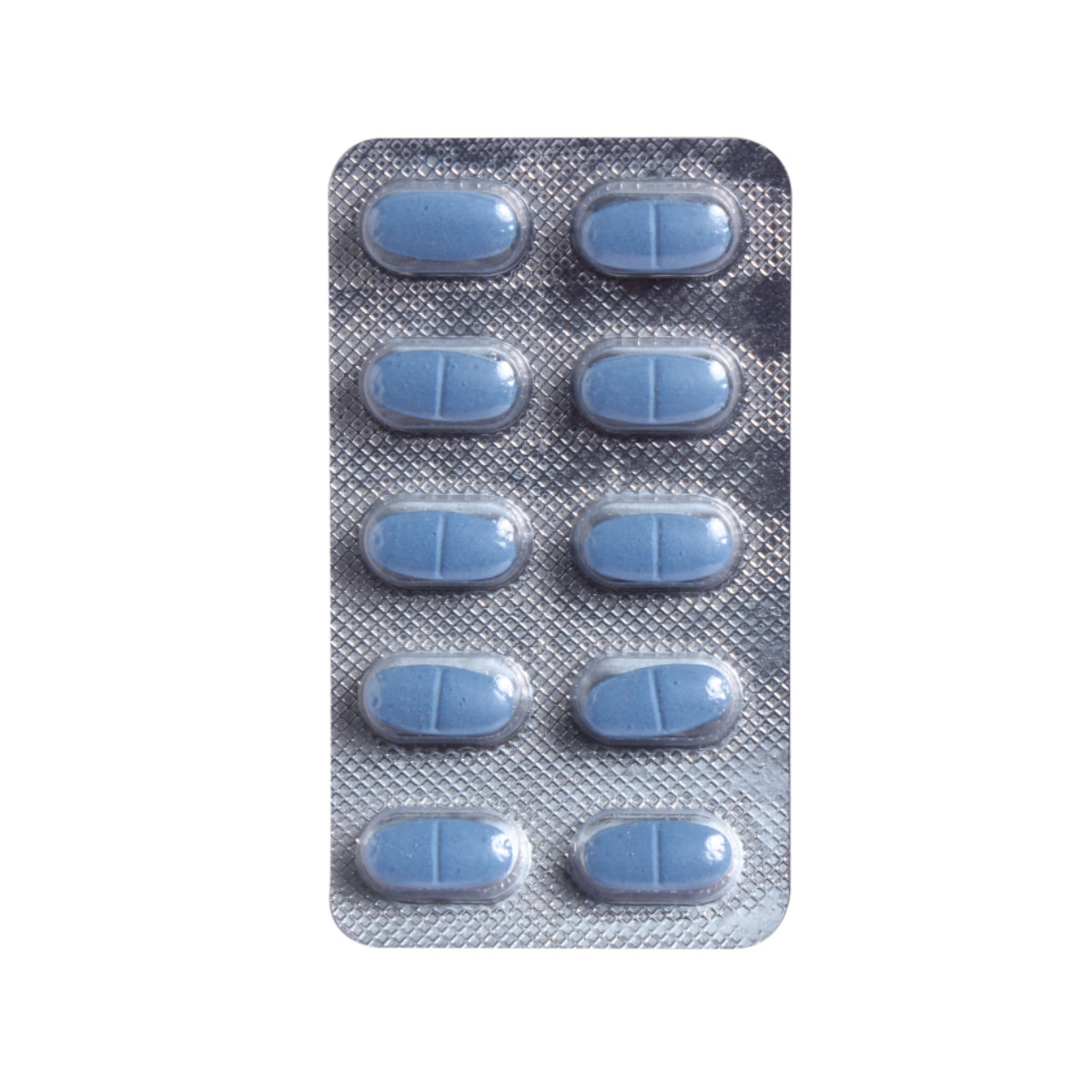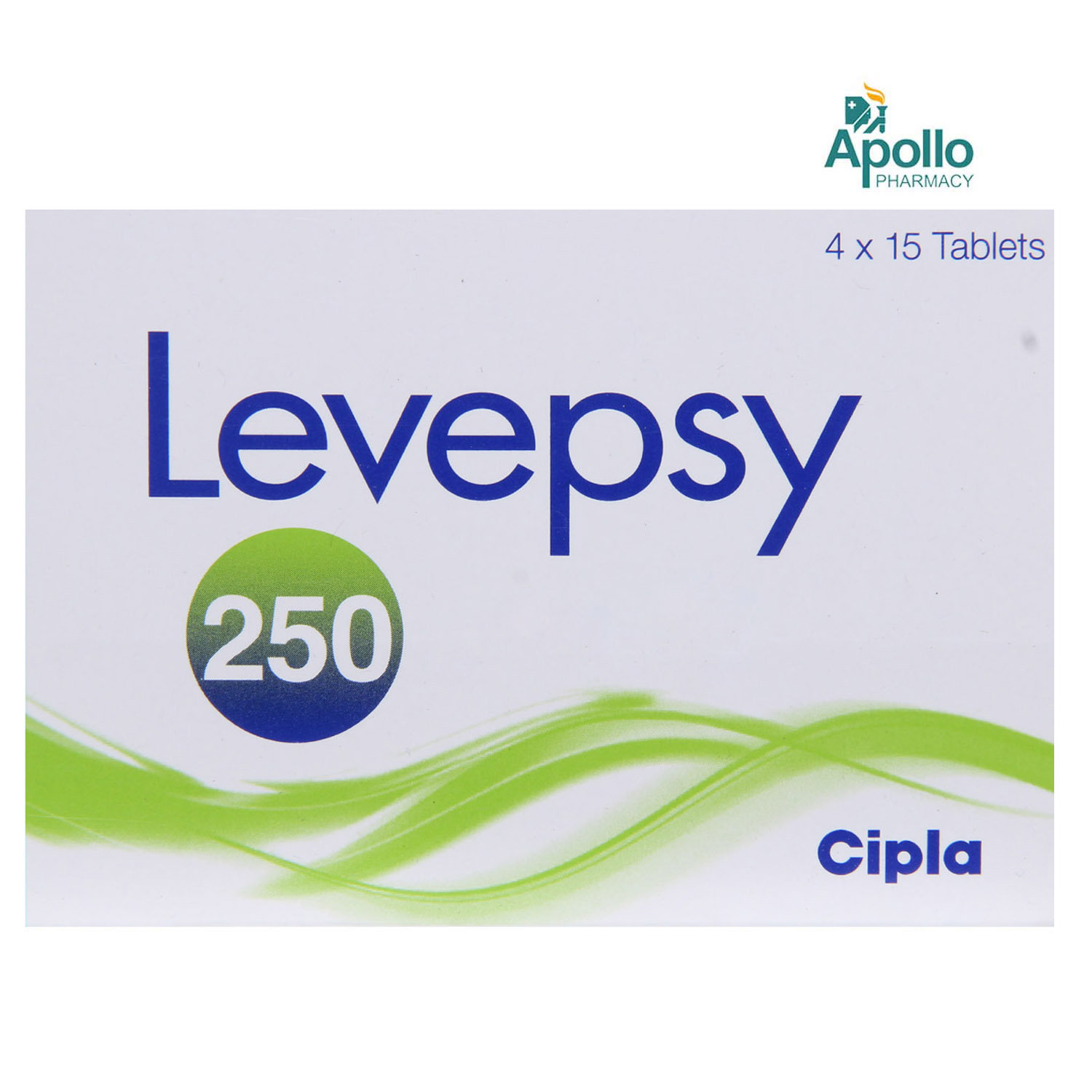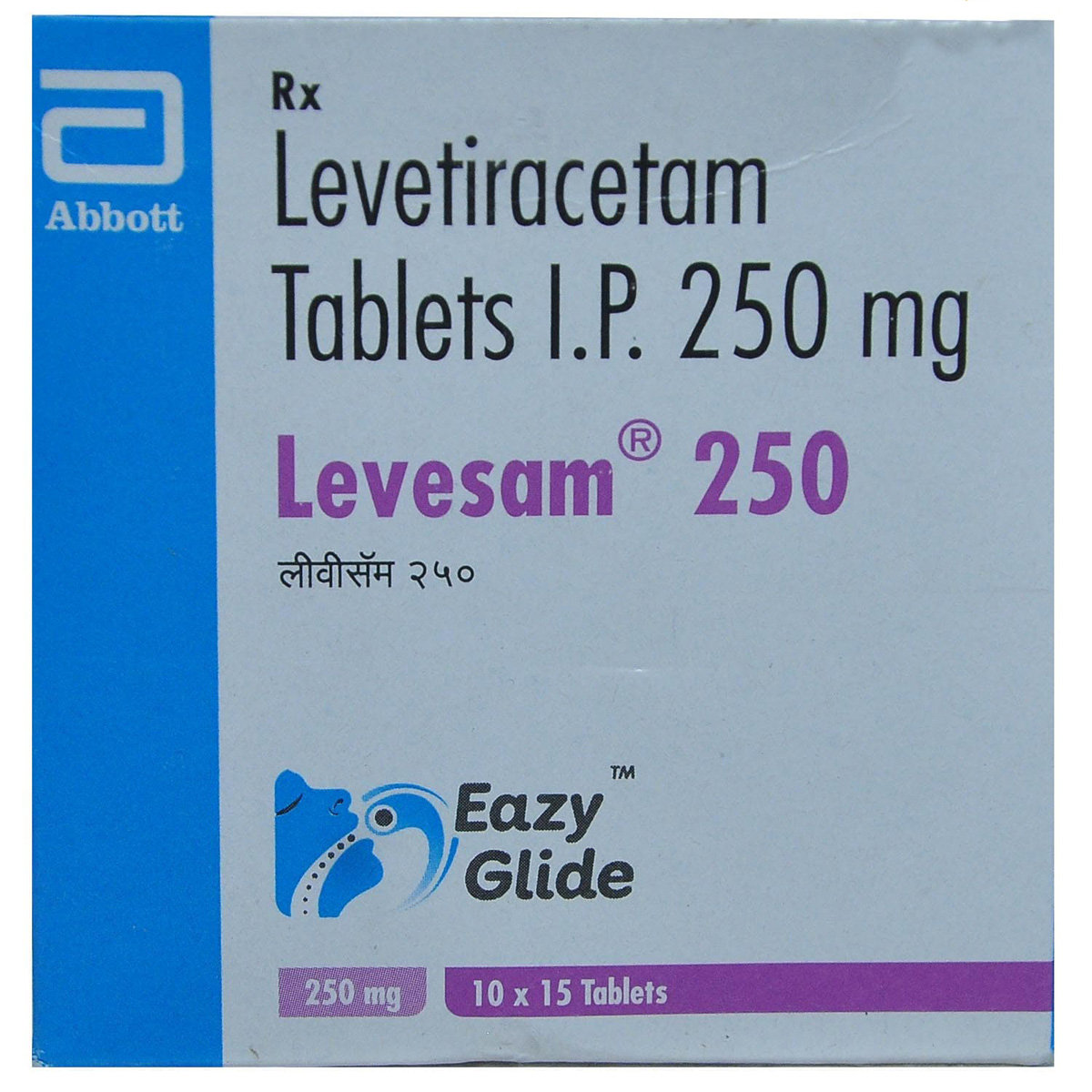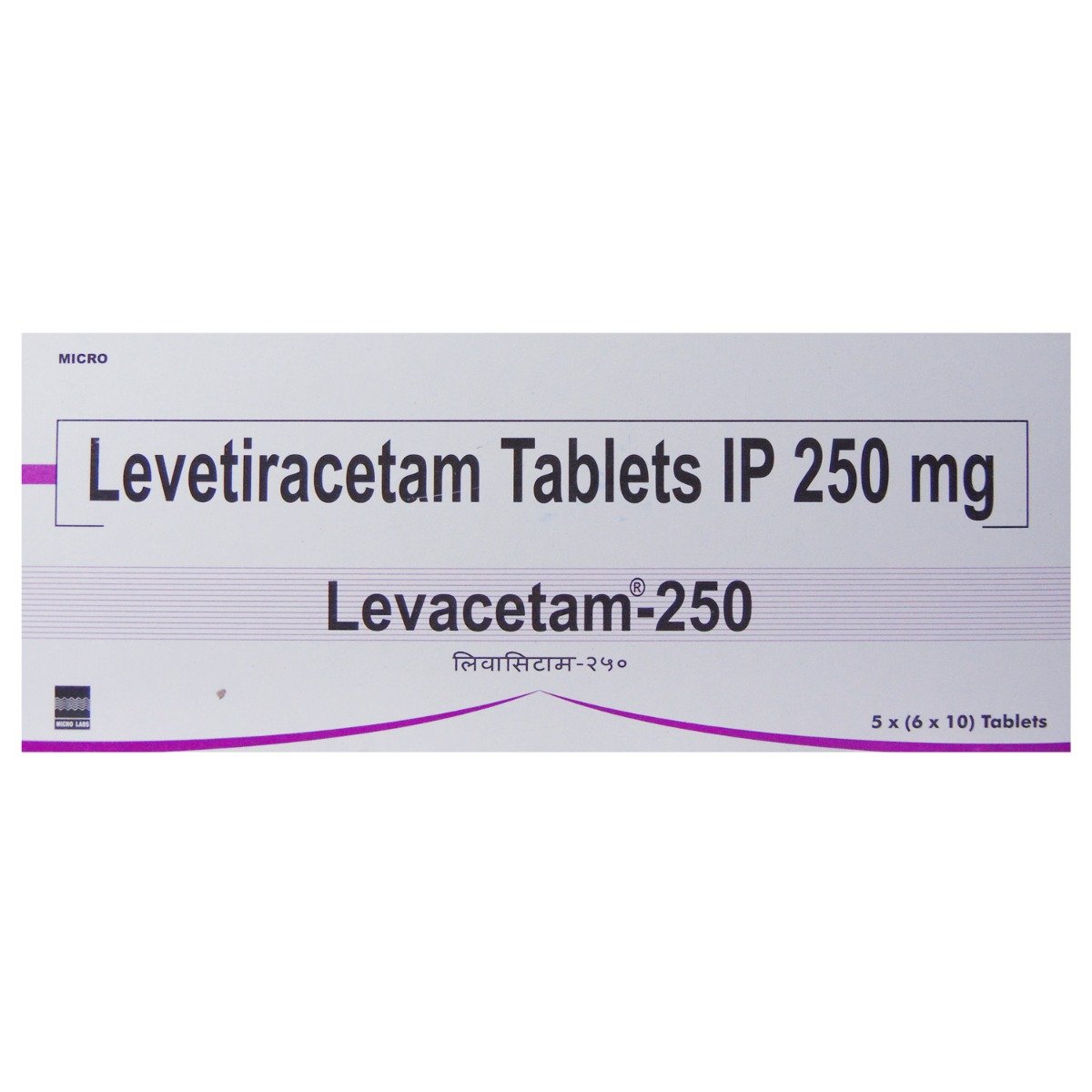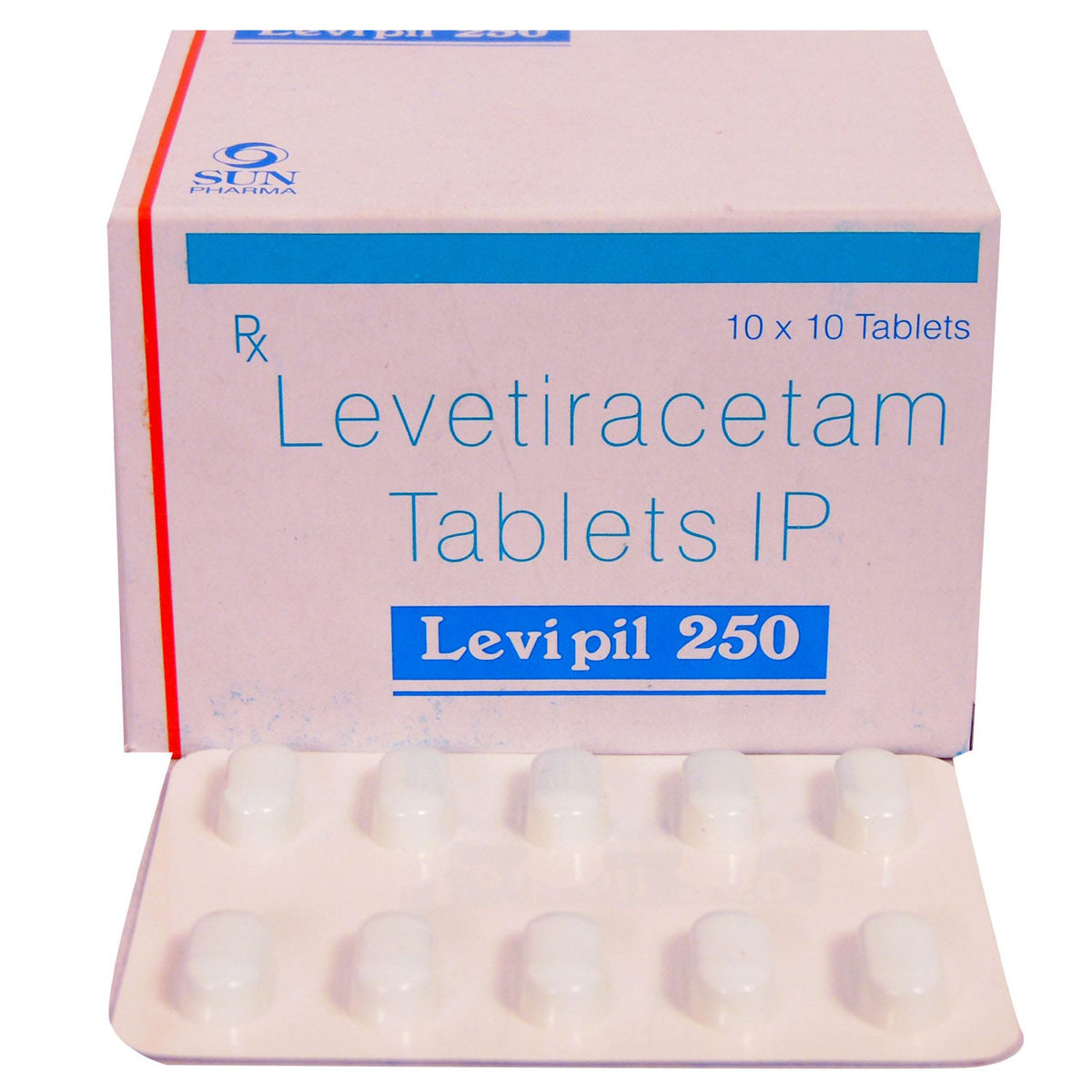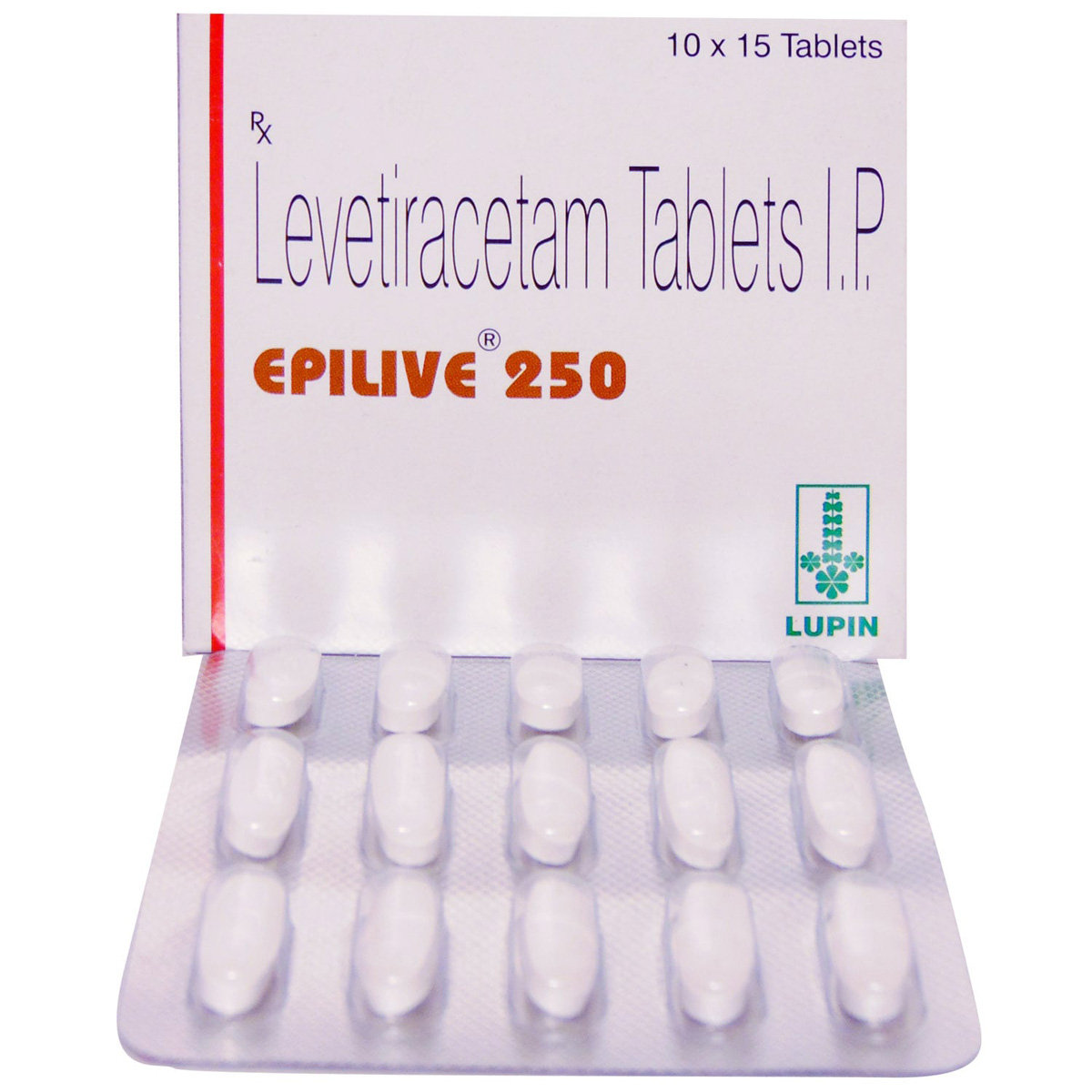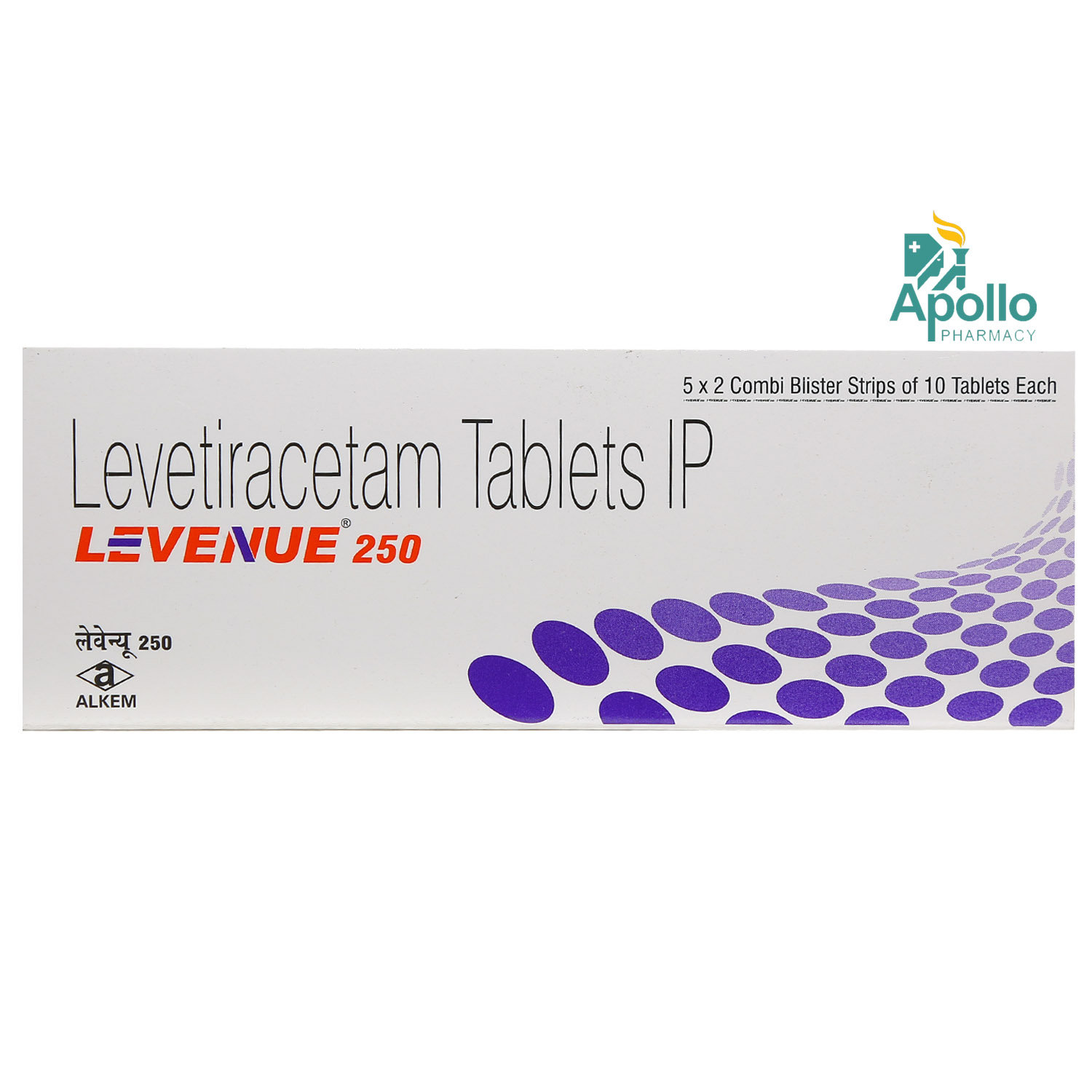Levigant-250 Tablet 10's


MRP ₹60
(Inclusive of all Taxes)
₹9.0 Cashback (15%)
Provide Delivery Location
Online payment accepted
 Prescription drug
Prescription drugWhats That
Composition :
Manufacturer/Marketer :
Consume Type :
Expires on or after :
Return Policy :
NPPA :
About Levigant-250 Tablet
Levigant-250 Tablet belongs to a group of medications known as 'anti-convulsant' primarily used to treat seizures (fits) due to epilepsy. Epilepsy is a chronic condition where the patients have repeated fits (convulsions). Levigant-250 Tablet is used for the epilepsy form in which the fits affect only one side of the brain, but could extend to larger areas on both sides of the brain.
Levigant-250 Tablet contains Levetiracetam, used in combination or alone for treating symptoms of epilepsy. It works by slowing down the abnormal signals which the brain gives, leading to episodes of seizures. It helps by suppressing specific brain sites responsible for abnormal activity and prevents the spread of electrical signals that cause seizures. It reduces the episodes of seizures but does not cure epilepsy.
Take Levigant-250 Tablet as prescribed. Your doctor will decide how often you should take Levigant-250 Tablet based on your medical condition. In some cases, you may experience daytime drowsiness, disturbed sleep, light-headedness, or dizziness, sleepiness, general weakness, and unexplained infections. Most of these side effects of Levigant-250 Tablet do not require medical attention and gradually resolve over time. However, if the side effects are persistent, please reach out to your doctor.
It is not known if Levigant-250 Tablet is safe or effective in children below four years of age. Do not take Levigant-250 Tablet if you have any kidney disease, lung disease, muscle weakness (myasthenia gravis), difficulty in sleeping (sleep apnoea), severe liver disease, or a problem with alcohol or other prescription drugs. It is not known if Levigant-250 Tablet will harm the foetus or not if you are pregnant or planning to get pregnant. Do not drive or operate heavy machinery until you know how Levigant-250 Tablet affects you, as its intake may make you dizzy or sleepy. Young children (especially less than 16 years) are more likely to develop behavioural changes like aggression than adults, so Levigant-250 Tablet should only be given under medical supervision to children. Suddenly stopping Levigant-250 Tablet can cause withdrawal symptoms like anxiety, increased heart rate, tremor, or general unwell feeling. Suicidal thoughts or actions can be caused in some patients taking Levigant-250 Tablet , so pay attention to any sudden change in mood swings, behaviour, or feeling.
Uses of Levigant-250 Tablet
Directions for Use
Key Benefits
Levigant-250 Tablet contains Levetiracetam, used in combination or alone for treating symptoms of epilepsy. It works by slowing down the abnormal signals which the brain gives, leading to episodes of seizures. It helps by suppressing specific brain sites responsible for abnormal activity and prevents the spread of electrical signals that cause seizures. It reduces the episodes of seizures but does not cure epilepsy.
Storage
- Prepare for a restful night's sleep: Develop a calming pre-sleep routine, like reading or meditation, to help your body relax and prepare for sleep.
- Create a sleep-conducive Environment: Make bedroom a sleep haven by ensuring it is quiet, dark and calm.
- Follow a Sleep Schedule: Go to bed and get up at the same time every day to help regulate your body's internal clock and increase sleep quality.
- Try relaxing techniques like deep breathing, mindfulness meditation and any others.
- Limit stimulating activities before bedtime: Avoid stimulating activities before bedtime to improve sleep quality.
- Monitor Progress: Keep track of your sleep patterns to identify areas for improvement.
- Consult a doctor if needed: If these steps don't improve your sleep, consult a doctor for further guidance and therapy.
- Hydrate your body: Drink enough water to prevent dehydration and headaches.
- Calm Your Mind: Deep breathing and meditation can help you relax and relieve stress.
- Rest and Recharge: Sleep for 7-8 hours to reduce headache triggers.
- Take rest: lie down in a quiet, dark environment.
- Cold or warm compresses can help reduce tension.
- Stay Upright: Maintain good posture to keep symptoms from getting worse.
- To treat headaches naturally, try acupuncture or massage therapy.
- Over-the-counter pain relievers include acetaminophen and ibuprofen.
- Prescription Assistance: Speak with your doctor about more substantial drug alternatives.
- Severe Headaches: Seek emergency medical assistance for sudden, severe headaches.
- Frequent Headaches: If you get reoccurring headaches, consult your doctor.
- Headaches with Symptoms: Seek medical attention if your headaches include fever, disorientation, or weakness.
- Inform your doctor about dizziness symptoms. They may adjust your medication regimen or prescribe additional medications to manage symptoms.
- Follow your doctor's instructions for taking medication, and take it at the same time every day to minimize dizziness.
- When standing up, do so slowly and carefully to avoid sudden dizziness.
- Avoid making sudden movements, such as turning or bending quickly, which can exacerbate dizziness.
- Drink plenty of water throughout the day to stay hydrated and help alleviate dizziness symptoms.
- If you're feeling dizzy, sit or lie down and rest until the dizziness passes.
- Track when dizziness occurs and any factors that may trigger it, and share this information with your doctor to help manage symptoms.
- Tell your doctor immediately if you experience shortness of breath after taking medication.
- Your doctor may adjust the medication regimen or dosage or give alternative medical procedures to minimize the symptoms of shortness of breath.
- Monitor your oxygen levels and breathing rate regularly to track changes and potential side effects.
- For controlling stress and anxiety, try relaxation techniques like deep breathing exercises, meditation, or yoga.
- Make lifestyle changes, such as quitting smoking, exercising regularly, and maintaining a healthy weight.
- Seek emergency medical attention if you experience severe shortness of breath, chest pain, or difficulty speaking.
- Follow up regularly with your doctor to monitor progress, adjust treatment plans, and address any concerns or questions.
- Inform your doctor about the nausea and discuss possible alternatives to the medication or adjustments to the dosage.
- Divide your daily food intake into smaller, more frequent meals to reduce nausea.
- Opt for bland, easily digestible foods like crackers, toast, plain rice, bananas, and applesauce.
- Avoid certain foods that can trigger nausea, such as fatty, greasy, spicy, and smelly foods.
- Drink plenty of fluids, such as water, clear broth, or electrolyte-rich beverages like coconut water or sports drinks.
- Use ginger (tea, ale, or candies) to help relieve nausea.
- Get adequate rest and also avoid strenuous activities that can worsen nausea.
- Talk to your doctor about taking anti-nausea medication if your nausea is severe.
- Record when your nausea occurs, what triggers it, and what provides relief to help you identify patterns and manage your symptoms more effectively.
- Inform Your Doctor: Notify your doctor immediately about your diarrhoea symptoms. This allows them to adjust your medication or provide guidance on managing side effects.
- Stay Hydrated: Drink plenty of fluids to replace lost water and electrolytes. Choose water, clear broth, and electrolyte-rich drinks. Avoid carbonated or caffeinated beverages to effectively rehydrate your body.
- Follow a Bland Diet: Eat easy-to-digest foods to help firm up your stool and settle your stomach. Try incorporating bananas, rice, applesauce, toast, plain crackers, and boiled vegetables into your diet.
- Avoid Trigger Foods: Steer clear of foods that can worsen diarrhoea, such as spicy, fatty, or greasy foods, high-fibre foods, and dairy products (especially if you're lactose intolerant).
- Practice Good Hygiene: Maintain good hygiene to prevent the spread of infection. To stay healthy, wash your hands frequently, clean and disinfect surfaces regularly, and avoid exchanging personal belongings with others.
- Take Anti-Diarrheal Medications: If your doctor advises, anti-diarrheal medications such as loperamide might help manage diarrhoea symptoms. Always follow your doctor's directions.
- Keep track of your diarrhoea symptoms. If they don't get better or worse or are accompanied by severe stomach pain, blood, or dehydration signs (like extreme thirst or dark urine), seek medical help.
- Inform your doctor about your constipation symptoms. They may adjust your medication or advise alternative treatments.
- Stay hydrated by drinking sufficient of water (at least 8-10 glasses a day) to help soften stool and promote bowel movements.
- Increase fibre intake by eating foods high in fibre, such as fruits, whole grains, vegetables and legumes, to help bulk up the stool.
- Establish a bowel routine by trying to go to the bathroom at the same time each day to train your bowels.
- Engaging in regular exercise, like walking or yoga, can support in bowel movement stimulation.
- Consult your doctor if constipation persists, and discuss alternative treatments or adjustments to your medication.
Drug Warnings
Taking Levigant-250 Tablet with other anti-epileptic medication can cause severe drowsiness, breathing problems, coma, and death. Levigant-250 Tablet should be taken with extreme caution in patients with a history of alcohol or drug abuse. Levigant-250 Tablet may affect your ability to drive or operate heavy machinery if taken with alcohol as you may feel dizzy, and you may be unable to concentrate. If you feel excess suicidal thoughts, difficulty concentrating, sleep disturbances, dizziness, or sleepiness, let your doctor know about this. Pregnant or lactating women should consult a doctor before taking it as Category C pregnancy medication. Do not take Levigant-250 Tablet if you are allergic to any of its active ingredients, suffer from lung disease, liver disease, glaucoma, have difficulty in sleeping (sleep apnoea). Levigant-250 Tablet can cause serious allergic reactions (anaphylaxis), which can be life-threatening. Please visit the doctor immediately if you have a rash, itching, trouble breathing, trouble swallowing, or swelling of your hands, face, or mouth while using this medicine.
Drug-Drug Interactions
Drug-Drug Interactions
Login/Sign Up
The combination of Amiodarone and Levigant-250 Tablet may significantly raise the risk of an abnormal heart rhythm.
How to manage the interaction:
Despite the fact that Amiodarone and Levigant-250 Tablet interact, it can be taken if prescribed by a doctor. If you get dizziness, lightheadedness, fainting, or fast or racing heartbeats, consult a doctor. Do not stop taking any medications without visiting a doctor.
Taking Levigant-250 Tablet with Ziprasidone can increase the risk of abnormal heart rhythm.
How to manage the interaction:
Taking Levigant-250 Tablet with Ziprasidone is not recommended, but it can be taken together if prescribed by a doctor. However, consult your doctor if you experience sudden dizziness, lightheadedness, fainting, shortness of breath. Do not discontinue any medications without consulting a doctor.
Combining Levigant-250 Tablet with Disopyramide can increase the risk of irregular heart rhythm .
How to manage the interaction:
Taking Levigant-250 Tablet with Disopyramide is not recommended, as it can result in an interaction, it can be taken if your doctor has advised it. However, if you experience any symptoms like sudden dizziness, lightheadedness, fainting, or fast or pounding heartbeats, contact your doctor immediately. Do not discontinue any medications without first consulting your doctor.
Using sotalol together with Levigant-250 Tablet can increase the risk of an irregular heart rhythm that may be serious. The risk increases in patients with a history of heart illness or electrolyte imbalance.
How to manage the interaction:
Taking Levigant-250 Tablet with Sotalol is generally avoided as it can result in an interaction, it can be taken if your doctor has advised it. If you experience sudden dizziness, lightheadedness, fainting, or fast or pounding heartbeats, contact a doctor immediately. Do not discontinue any medications without consulting a doctor.
Coadministration of Levigant-250 Tablet with Haloperidol can increase the risk or severity of irregular heart rhythms. The risk increases in patients with a history of heart illness or electrolyte imbalance.
How to manage the interaction:
Taking Levigant-250 Tablet with haloperidol can result in an interaction, but it can be taken if a doctor has advised it. However, if you experience abrupt dizziness, lightheadedness, fainting, shortness of breath, or rapid heartbeat, get medical help immediately. Do not discontinue any medications without consulting a doctor.
Although it is a very rare adverse effect, taking Levigant-250 Tablet with vemurafenib increases the risk of an abnormal heart rhythm. If you're dealing with other heart illnesses, electrolyte imbalances (for example, magnesium or potassium loss likely due to serious or prolonged diarrhea or vomiting), you may be at greater risk.
How to manage the interaction:
Although concomitant administration of Levigant-250 Tablet with vemurafenib can possibly result in an interaction, it can be taken if your doctor has advised it. However, if you experience abrupt dizziness, lightheadedness, fainting, shortness of breath, or rapid heartbeat, get medical help immediately. Do not discontinue any medications without consulting a doctor.
Taking Levigant-250 Tablet with anagrelide increases the risk of an abnormal heart rhythm.
How to manage the interaction:
Concomitant administration of Levigant-250 Tablet alongside anagrelide can result in an interaction, it can be taken if a doctor has advised it. However, if you experience abrupt dizziness, lightheadedness, fainting, shortness of breath, or rapid heartbeat, get medical help immediately. Do not discontinue any medications without consulting a doctor.
Coadministration of Levigant-250 Tablet and Leflunomide can increase the risk of liver issues.
How to manage the interaction:
Although concomitant administration of Levigant-250 Tablet alongside leflunomide can result in an interaction, it can be taken if a doctor has advised it. However, if you have a fever, chills, joint pain or swelling, unusual bleeding or bruising, skin rash, itching, loss of appetite, fatigue, nausea, vomiting, abdominal pain, dark-colored urine, light-colored stools, and/or yellowing of the skin or eyes, contact the doctor right away. Do not discontinue any medications without consulting a doctor.
Coadministration of Levigant-250 Tablet and Pasireotide can increase the risk of an irregular heart rhythm.
How to manage the interaction:
Taking Levigant-250 Tablet with Pasireotide together can result in an interaction, but it can be taken if a doctor has advised it. If you have any symptoms like an irregular heartbeat, dizziness, fainting, or trouble breathing, you should call a doctor right away. Do not stop using any medications without talking to a doctor.
Using dofetilide together with Levigant-250 Tablet can increase the risk of an irregular heart rhythm.
How to manage the interaction:
Although there is a possible interaction between Levigant-250 Tablet and Dofetilide, you can take these medicines together if prescribed by a doctor. If you experience symptoms like an irregular heart rhythm, dizziness, fainting, or shortness of breath, it's important to call a doctor right away. Do not stop using any medications without a doctor's advice.
Drug-Food Interactions
Drug-Food Interactions
Login/Sign Up
Diet & Lifestyle Advise
- Do regular exercise, which can help lower anxiety by releasing endorphins and improving your sleep and self-image.
- Find the humor in your daily life. Try to watch light-hearted shows to help relieve stress.
- You can try increasing your mindfulness by including yoga, meditation, mindfulness-based cognitive therapy, and mindfulness-based stress reduction.
- Drink enough water to stay hydrated, and limit or avoid alcohol and caffeine to relieve anxiety.
- Include a diet rich in whole grains, vegetables, and fruits. This is a healthier option than eating a lot of simple carbohydrates found in processed foods.
- Reduce your alcohol, caffeine, added sugar, high salt, and high fat intake. Especially trans-fat may help also help reduce inflammation.
- You can include antioxidants in your daily diet like ashwagandha, omega-3 fatty acids, green tea, and lemon balm.
- Try to spend time with your friends and family. Having a strong social network may help you lower your risk of anxiety.
Side Effects of Levigant-250 Tablet
- Daytime drowsiness
- Disturbed sleep
- Light-headedness
- Dizziness
- Sleepiness
- General weakness
- Unexplained infections
Habit Forming
Therapeutic Class
All Substitutes & Brand Comparisons
RX
Epifast 250 Tablet 10's
Mankind Pharma Pvt Ltd
₹59
(₹5.31 per unit)
1% CHEAPERRX
Levigress 250 Tablet 10's
La Renon Healthcare Pvt Ltd
₹64.5
(₹5.81 per unit)
7% COSTLIERRX
Levroxa 250 Tablet 10's
Eris Life Sciences Ltd
₹65.5
(₹5.9 per unit)
9% COSTLIER
Product Substitutes
Drug-Diseases Interactions
Drug-Diseases Interactions
Login/Sign Up
FAQs
Caffeine is a stimulant that may reduce the calming effects of Levigant-250 Tablet . So, it is advisable to avoid caffeine intakes like coffee, tea, cola, or chocolate containing caffeine.
If the intake of Levigant-250 Tablet makes you feel sleepy or dizzy, do not drive a motor vehicle or operate machinery. Let your doctor know if you feel such symptoms after taking this medicine.
Levigant-250 Tablet is a Category C pregnancy drug. It means studies have shown the risk of adverse effects on the fetus when the mother takes this medicine. So, if you are planning a pregnancy or are currently pregnant, inform your doctor.
There is no clinical evidence that Levigant-250 Tablet affects fertility in either men or women. But, if you are trying to get pregnant, consult your doctor.
Do not stop taking Levigant-250 Tablet until instructed by your doctor. You may get side effects like confusion, depression, nervousness, sweating, and diarrhea. Your doctor may lower the dose of Levigant-250 Tablet if using it for more than 2-4 weeks of treatment to reduce side effects.
Levigant-250 Tablet is prescribed for the long term when used for epilepsy. So, if Levigant-250 Tablet is prescribed for more than 4 weeks, your doctor may reduce the dose before stopping it completely to prevent withdrawal symptoms.
Yes, if you feel unexpected puberty or slowing in growth, please consult your doctor and do as your doctor advises.
No, even if you feel better, you should not stop the medication without consulting your doctor as this might increase the episodes of seizures.
Drug-Drug Interactions Checker List
- RITONAVIR
- CIMETIDINE
- DISULFIRAM
- PHENOBARBITAL
- LEVODOPA
- THEOPHYLLINE
- PHENYTOIN
Disease/Condition Glossary
Epilepsy: Epilepsy is a brain-related chronic disorder characterized by episodes of seizures (fits). In this condition, there is a chemical change in the brain cells (neurons) that leads to a sudden rise of electrical activity (impulse) in the brain followed by sudden jerky movements of limbs or a body part. This disease cannot be cured but managed.

Have a query?
Buy best C.n.s Drugs products by
Intas Pharmaceuticals Ltd
Sun Pharmaceutical Industries Ltd
Torrent Pharmaceuticals Ltd
Alkem Laboratories Ltd
Abbott India Ltd
Cipla Ltd
Alteus Biogenics Pvt Ltd
Micro Labs Ltd
Lupin Ltd
Ipca Laboratories Ltd
D D Pharmaceuticals Pvt Ltd
Icon Life Sciences
Mankind Pharma Pvt Ltd
Tripada Healthcare Pvt Ltd
Arinna Lifesciences Ltd
Linux Laboratories Pvt Ltd
East West Pharma India Pvt Ltd
La Renon Healthcare Pvt Ltd
Talent India Pvt Ltd
Tas Med India Pvt Ltd
Zydus Healthcare Ltd
Cnx Health Care Pvt Ltd
Eris Life Sciences Ltd
Leeford Healthcare Ltd
Emcure Pharmaceuticals Ltd
Macleods Pharmaceuticals Ltd
Sigmund Promedica
Aristo Pharmaceuticals Pvt Ltd
Dr Reddy's Laboratories Ltd
Troikaa Pharmaceuticals Ltd
Consern Pharma Ltd
Zydus Cadila
Shine Pharmaceuticals Ltd
Wockhardt Ltd
Ardent Life Sciences Pvt Ltd
Crescent Formulations Pvt Ltd
Theo Pharma Pvt Ltd
Reliance Formulation Pvt Ltd
Ikon Pharmaceuticals Pvt Ltd
Propel Healthcare
Neon Laboratories Ltd
Jagsam Pharma
Msn Laboratories Pvt Ltd
Morepen Laboratories Ltd
Pulse Pharmaceuticals
Sanofi India Ltd
Med Manor Organics Pvt Ltd
Hetero Healthcare Pvt Ltd
Novartis India Ltd
Crescent Therapeutics Ltd
Elder Pharmaceuticals Ltd
Solvate Laboratories Pvt Ltd
Akumentis Healthcare Ltd
Mova Pharmaceutical Pvt Ltd
Psyco Remedies Ltd
Tripada Lifecare Pvt Ltd
Ajanta Pharma Ltd
Cyrus Remedies Pvt Ltd
Medishri Healthcare Pvt Ltd
Cadila Healthcare Ltd
Glenmark Pharmaceuticals Ltd
Matteo Health Care Pvt Ltd
Hbc Life Sciences Pvt Ltd
Lyf Healthcare
Matias Healthcare Pvt Ltd
Mesmer Pharmaceuticals
Alembic Pharmaceuticals Ltd
Capital Pharma
Crescent Pharmaceuticals
Medopharm Pvt Ltd
Alniche Life Sciences Pvt Ltd
Kivi Labs Ltd
Talin Remedies Pvt Ltd
USV Pvt Ltd
Quince Lifesciences Pvt Ltd
Solis Pharmaceuticals
Infivis Life Care
Zuventus Healthcare Ltd
Cadila Pharmaceuticals Ltd
Pfizer Ltd
Wallace Pharmaceuticals Pvt Ltd
A N Pharmacia Laboratories Pvt Ltd
Blue Cross Laboratories Pvt Ltd
Jenburkt Pharmaceuticals Ltd
Lia Life Sciences Pvt Ltd
Mano Pharma
Medley Pharmaceuticals Ltd
Primus Remedies Pvt Ltd
FDC Ltd
Maneesh Pharmaceuticals Ltd
Apex Laboratories Pvt Ltd
Gagnant Healthcare Pvt Ltd
Ozone Pharmaceuticals Ltd
RPG Life Sciences Ltd
Strides Shasun Ltd
Unichem International
GlaxoSmithKline Pharmaceuticals Ltd
Kuresys Labs Pvt Ltd
LA Pharma
Trion Pharma India Llp
Alcohol
Safe if prescribed
You are recommended not to consume alcohol along with Levigant-250 Tablet to avoid unpleasant side-effects like drowsiness, dizziness, or sleepiness. It may also lead to a life-threatening condition like coma if taken with excessive alcohol.
Pregnancy
Consult your doctor
Levigant-250 Tablet is a Category C risk pregnancy drug that is considered unsafe for pregnant women. Levigant-250 Tablet can have some harmful effects on the baby (fetus), so your doctor will weigh the benefits and any potential risks before prescribing it to you.
Breast Feeding
Consult your doctor
Levigant-250 Tablet passes into the breast milk and may affect the health of the baby. So, keep your doctor informed if you're planning to breastfeed while on this medication.
Driving
Safe if prescribed
Levigant-250 Tablet usually causes dizziness, drowsiness, and visual disturbances, which may affect their ability to drive or operate machinery. So, do not drive or operate heavy machinery if you feel sleepy or dizzy after taking Levigant-250 Tablet . Tell your doctor if you get these types of side effects.
Liver
Consult your doctor
Levigant-250 Tablet to be taken with caution, especially if you have a history of liver disease. The dose may have to be adjusted by your doctor.
Kidney
Consult your doctor
Levigant-250 Tablet to be taken with caution, especially if you have a history of kidney disorders. The dose may have to be adjusted by your doctor. Do not give Levigant-250 Tablet to dialysis patients and kidney failure patients.
Children
Safe if prescribed
It is not known whether Levigant-250 Tablet is safe or effective in treating conditions like panic disorder in children younger than 18 years old. So, your doctor will decide whether Levigant-250 Tablet can be given to the children less than 18 years of age or not.



